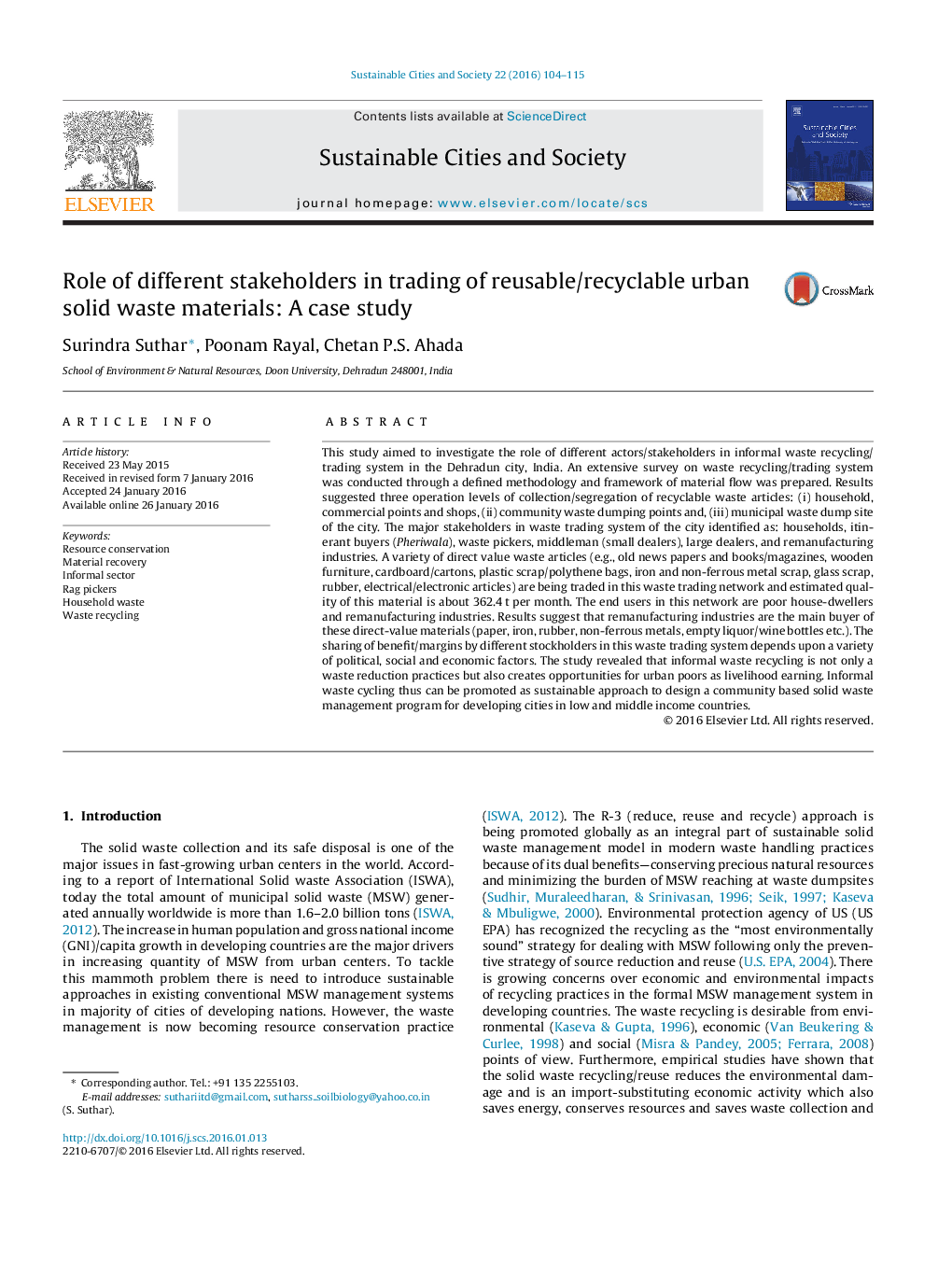| Article ID | Journal | Published Year | Pages | File Type |
|---|---|---|---|---|
| 308068 | Sustainable Cities and Society | 2016 | 12 Pages |
•The informal waste recycling and trading system has been appeared as an important sector in the city in terms of livelihood earning in urban poors.•The remanufacturing industries buy direct value waste materials (plastic, polythene, iron, metal, paper, rubber etc.) to be used as secondary raw materials.•The role of different stakeholders in this waste trading system depends upon a variety of political, social and economic factors.
This study aimed to investigate the role of different actors/stakeholders in informal waste recycling/trading system in the Dehradun city, India. An extensive survey on waste recycling/trading system was conducted through a defined methodology and framework of material flow was prepared. Results suggested three operation levels of collection/segregation of recyclable waste articles: (i) household, commercial points and shops, (ii) community waste dumping points and, (iii) municipal waste dump site of the city. The major stakeholders in waste trading system of the city identified as: households, itinerant buyers (Pheriwala), waste pickers, middleman (small dealers), large dealers, and remanufacturing industries. A variety of direct value waste articles (e.g., old news papers and books/magazines, wooden furniture, cardboard/cartons, plastic scrap/polythene bags, iron and non-ferrous metal scrap, glass scrap, rubber, electrical/electronic articles) are being traded in this waste trading network and estimated quality of this material is about 362.4 t per month. The end users in this network are poor house-dwellers and remanufacturing industries. Results suggest that remanufacturing industries are the main buyer of these direct-value materials (paper, iron, rubber, non-ferrous metals, empty liquor/wine bottles etc.). The sharing of benefit/margins by different stockholders in this waste trading system depends upon a variety of political, social and economic factors. The study revealed that informal waste recycling is not only a waste reduction practices but also creates opportunities for urban poors as livelihood earning. Informal waste cycling thus can be promoted as sustainable approach to design a community based solid waste management program for developing cities in low and middle income countries.
